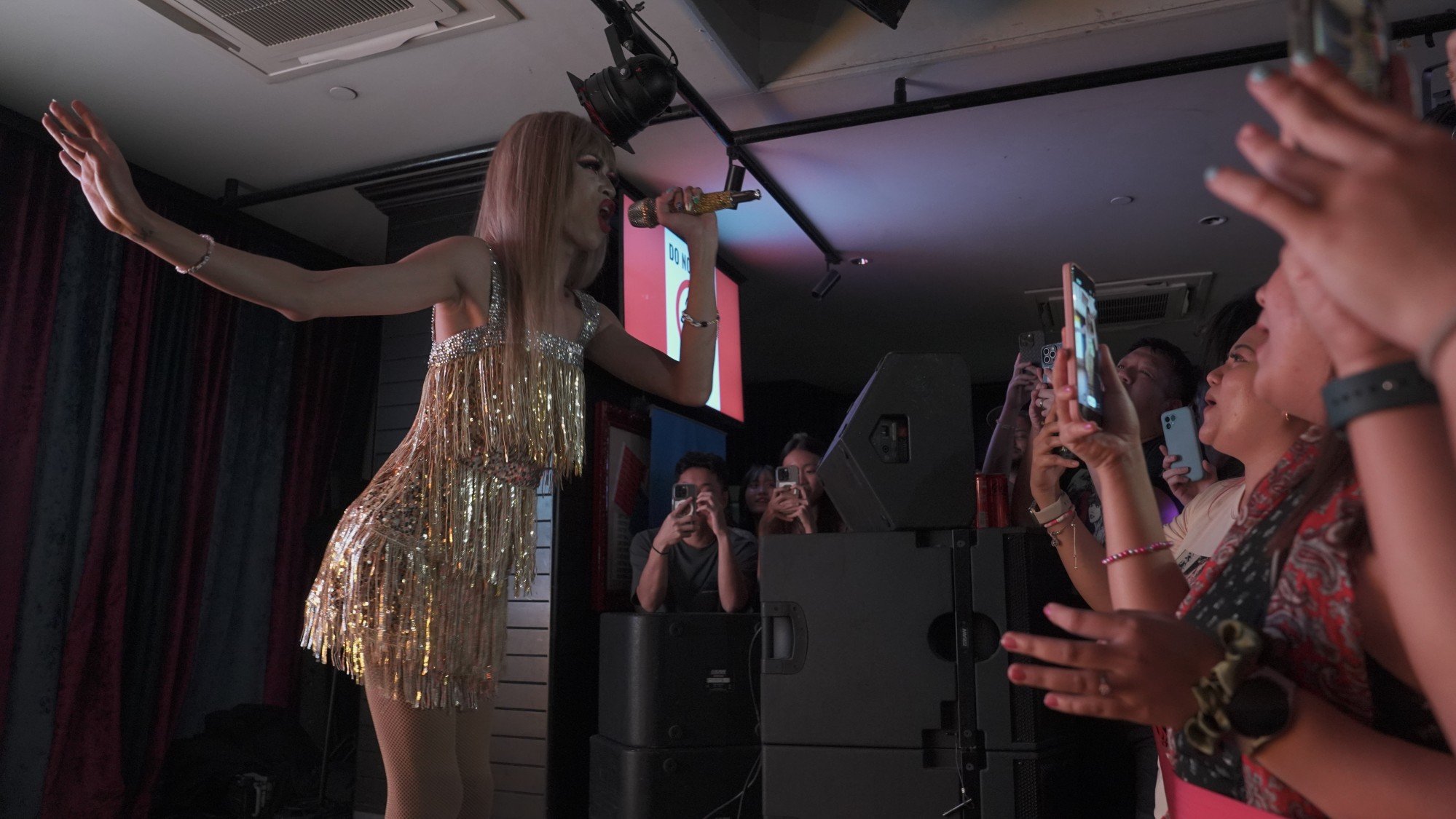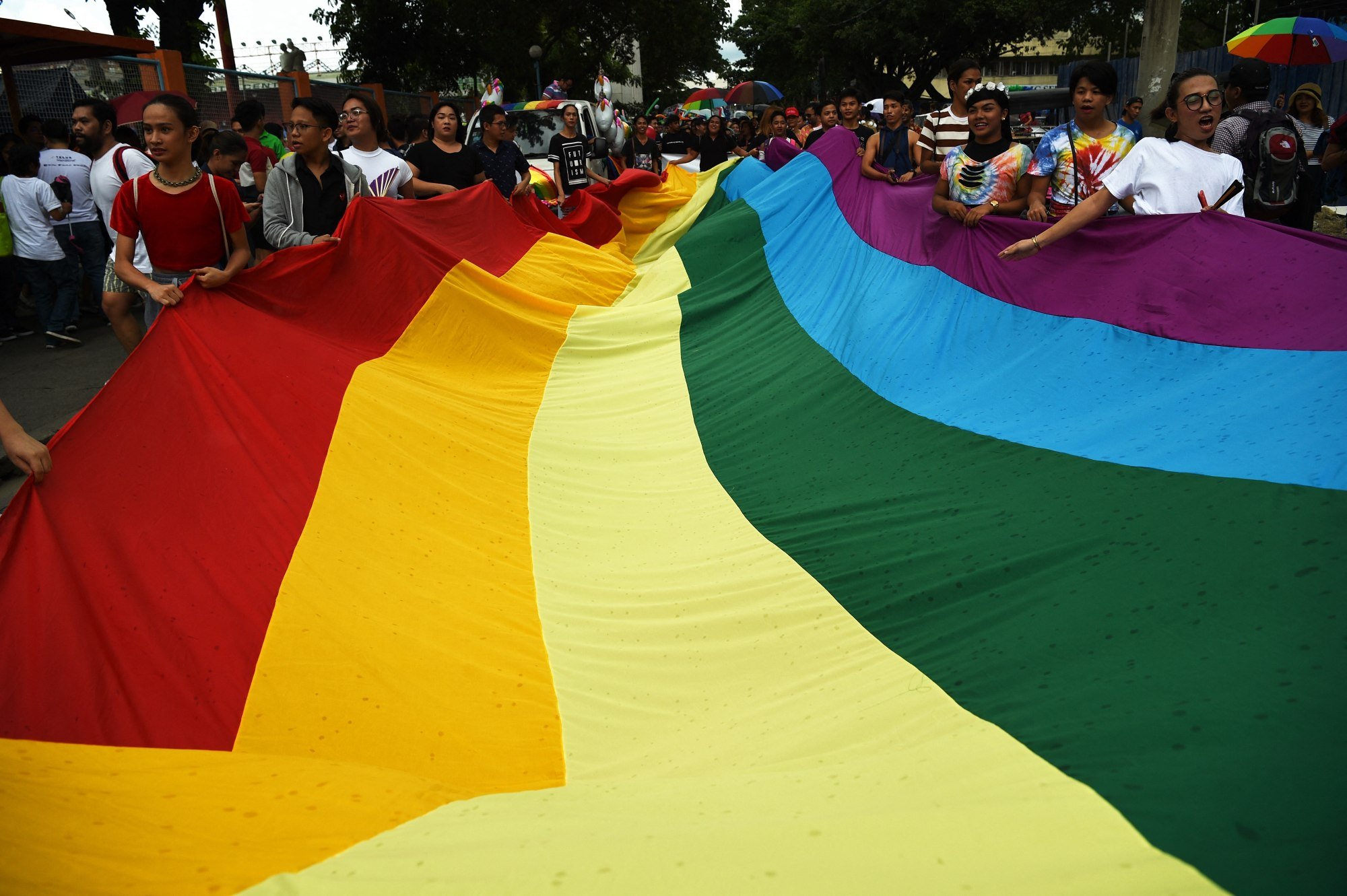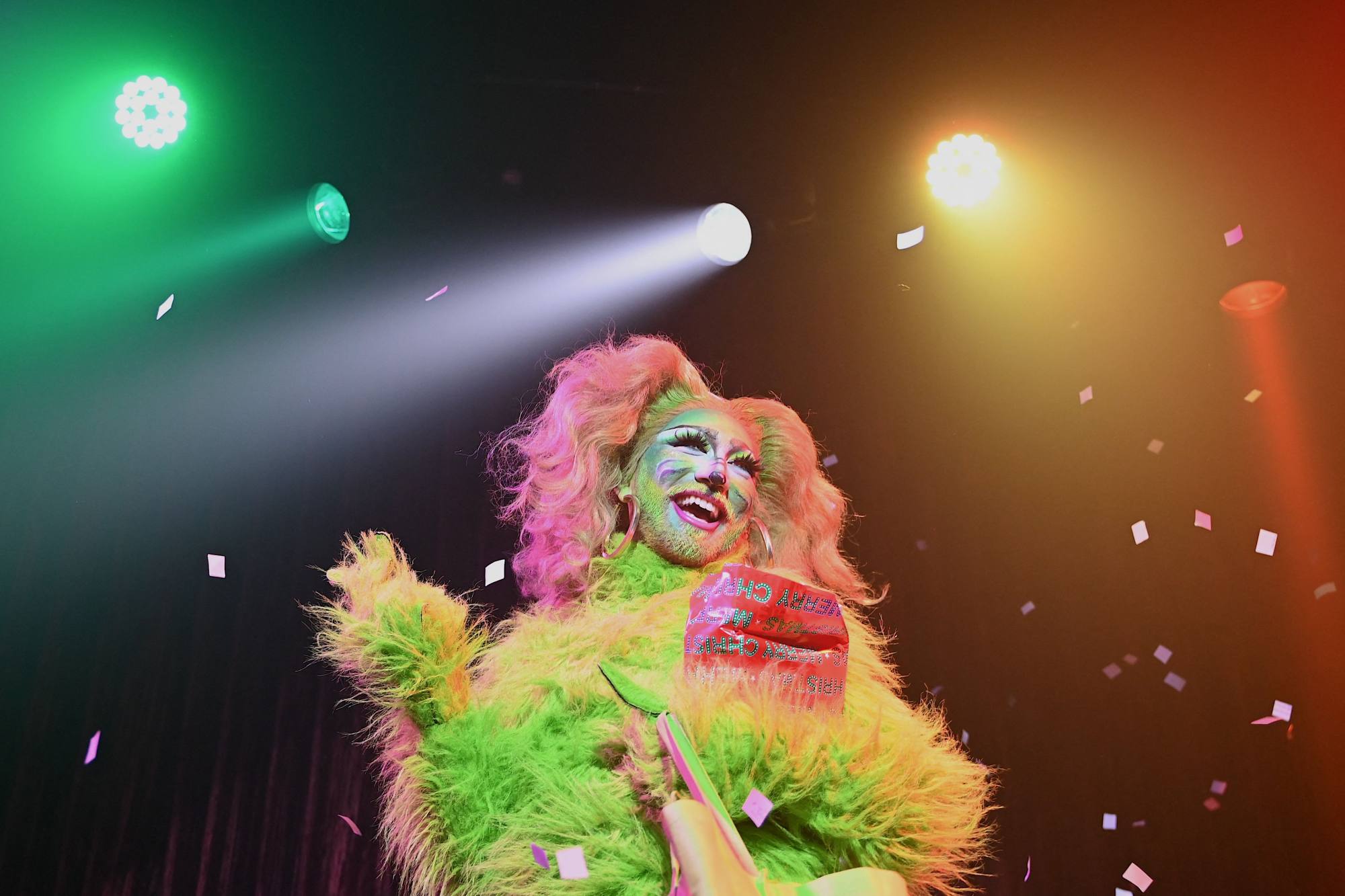
Attack on Philippine drag artist Taylor Sheesh sparks outrage and renewed calls for LGBTQ equality bill
- Filipino Taylor Swift impersonator Taylor Sheesh was assaulted during a concert performance in the Philippines
- Outrage over the attack has led to renewed calls for the passage of a long stalled anti-discrimination bill and other legal protections
Sheesh, real name Mac Coronel, confirmed in a social media post that she was attacked at a local town concert in Bayambang, a town in Pangasinan province around 200km away from Manila.
“This is traumatic. Literally. I’m shaking right now,” the artist posted on X, formerly known as Twitter, the day after the incident.
Screenshots of a male audience member sticking out his hand to hit the drag queen in the neck in the middle of her performance on April 6 went viral on social media, sparking outrage among the Taylor Swift impersonator’s many fans and supporters.

Bayambang Mayor Niña Jose-Quiambao condemned the act on her social media page.
“I will not tolerate homophobia and physical abuse in my town. I will make sure that justice will be dealt [sic]. I am sorry to Taylor Sheesh that someone assaulted her during her performance,” Quiambao wrote. She also reassured the public that the perpetrator was under the custody of local authorities.
The drag artist later posted an update stating that the man was charged with unjust vexation, a minor offence punishable by jail time between one and 30 days and a fine of 5 to 200 Philippine pesos.
“I will not tolerate violence against the LGBTQIA+ community. We need a SOGIE [Sexual Orientation and Gender Identity and Expression Equality] Bill or a law to protect us from any kind of homophobic or transphobic activity. Hope we get the justice we deserve,” Coronel wrote in a social media post.
The Philippines’ SOGIE Equality Bill, which seeks to criminalise discrimination based on sexual orientation, gender identity, gender expression, or sexual characteristics (SOGIESC), was first filed in Congress 20 years ago, but little progress has been made towards its passage since.
Senate Majority Leader Joel Villanueva, the son of popular Christian evangelist Eddie Villanueva, referred the bill back to the committee level last year and said he “did not see an urgency for that particular measure”.
Singapore Swifties shake off post-concert blues with impersonator Taylor Sheesh
LGBTQ rights advocates believe the bill’s legal measures are essential in preventing discrimination against the minority, which they say remains a serious issue despite the country’s seemingly high levels of LGBTQ acceptance.
The Philippines is perceived to be one of the most LGBTQ-friendly countries in Southeast Asia. According to a survey by the Pew Research Center in 2019, 73 per cent of Filipinos agreed that homosexuality should be accepted by society, a number far higher than its neighbours, including South Korea at 44 per cent and Indonesia at 9 per cent.
The most recent version of the bill would prohibit discriminatory practices such as using an individual’s SOGIESC as a basis for hiring or dismissing employees, as well as refusing admission or expelling a student from schools. Offenders would face a penalty of 250,000 pesos (US$4,370) or imprisonment of up to six years.
However, some advocates say that the SOGIE Equality Bill still would not be enough to protect the LGBTQ community from violence.
“On top of a SOGIE Anti-Discrimination Law, we will need a specific anti-hate crime law,” lawyer and online personality Jesus Falcis wrote on X.
“For a country that presents itself as ‘LGBTQIA+-friendly,’ no legal measures have been taken to protect people like [Taylor Sheesh] from being discriminated against because of their sexual orientation and gender identity,” writer Em Enriquez wrote in local magazine Preview. “The truth of the matter is, Taylor Sheesh’s experience is only one of many cases that, more often than not, are swept under the carpet.”

“Anti-LGBTQIA+ attacks are forms of gender-based violence and therefore discriminatory. These degrade the very essence of one’s identities and one’s lived realities. Violence and discrimination must have no place in any society that claims to be inclusive,” Ryan Silverio, executive director of the ASEAN SOGIE Caucus, told This Week in Asia.
Thysz Estrada, chairperson of the youth-led gender lobbying group Pantay, said while LGBTQ tolerance was high in the Philippines, gaining true acceptance remains a challenge in the country. “Increasingly vicious anti-LGBTQ+ rhetoric online often manifests offline through physical violence, especially for highly online public figures like Taylor Sheesh. This underlines the need for a specific law that protects LGBTQ+ from harm and discrimination.”
The incident against the drag performer is the latest among a series of transgressions against members of the LGBTQ community in the country.
Drag artist Pura Luka Vega was arrested in October after a video of their performance of a remixed version of the Lord’s Prayer at a pride performance in June went viral and earned the ire of Christian conservatives, who reported the performance for violating a law on immoral doctrines and indecent exhibitions. Vega was arrested again in February on similar charges.

In December, President Ferdinand Marcos Jnr ordered the creation of a Special Committee on Lesbian, Gay, Bisexual, Transgender, Queer, Intersex and Asexual (LGBTQIA+) Affairs in December to address discrimination against the community.
However, Estrada told This Week in Asia that the committee had not achieved any observable progress so far on its goal helping to formulate LGBTQ-related government policy.
Some cities and municipalities in the Philippines have passed city ordinances banning gender-based discrimination within their areas.
Yet advocates argue that these local laws are not enough to protect LGBTQ individuals without a national law that consolidates the full implementation of these ordinances.
“Some ordinances are in place, but most lack implementing rules and regulations. The changing political landscape affects this, and deprioritisation of human rights-based ordinances often takes the first hit,” Estrada said.
“These measures are not enough. Just like what happened to the students of EARIST not long ago, Manila is protected by an anti-discrimination ordinance, but the students still experienced discrimination inside that institution,” Arri Samsico, secretary general of LGBTQ alliance Bahaghari, told This Week in Asia.
Video of Philippine LGBTQ student given forced haircut sparks calls for change
“The LGBTQ+ community is not fully protected by laws that mandate everybody stop these attacks,” Samsico said.
Meanwhile, Silverio said while a national law was valuable, it should not be treated as a silver bullet that would prevent gender-based discrimination.
“The mainstreaming of SOGIESC within various laws is needed – be it in labour policies, gender-based violence, or humanitarian response,” they said.
They added that as victims muster the courage to come forward about their experiences, it is important for the public to recognise that these individuals usually face consequences for speaking up.
“While there may be numbers reported, a lot still go below the radar. We have to recognise that those who speak up and challenge unjust policies and practices, such as those in schools, face reprisals. The power dynamics that exist between LGBTQIA+ folks and those in authority are barriers to seeking justice,” Silverio said.

